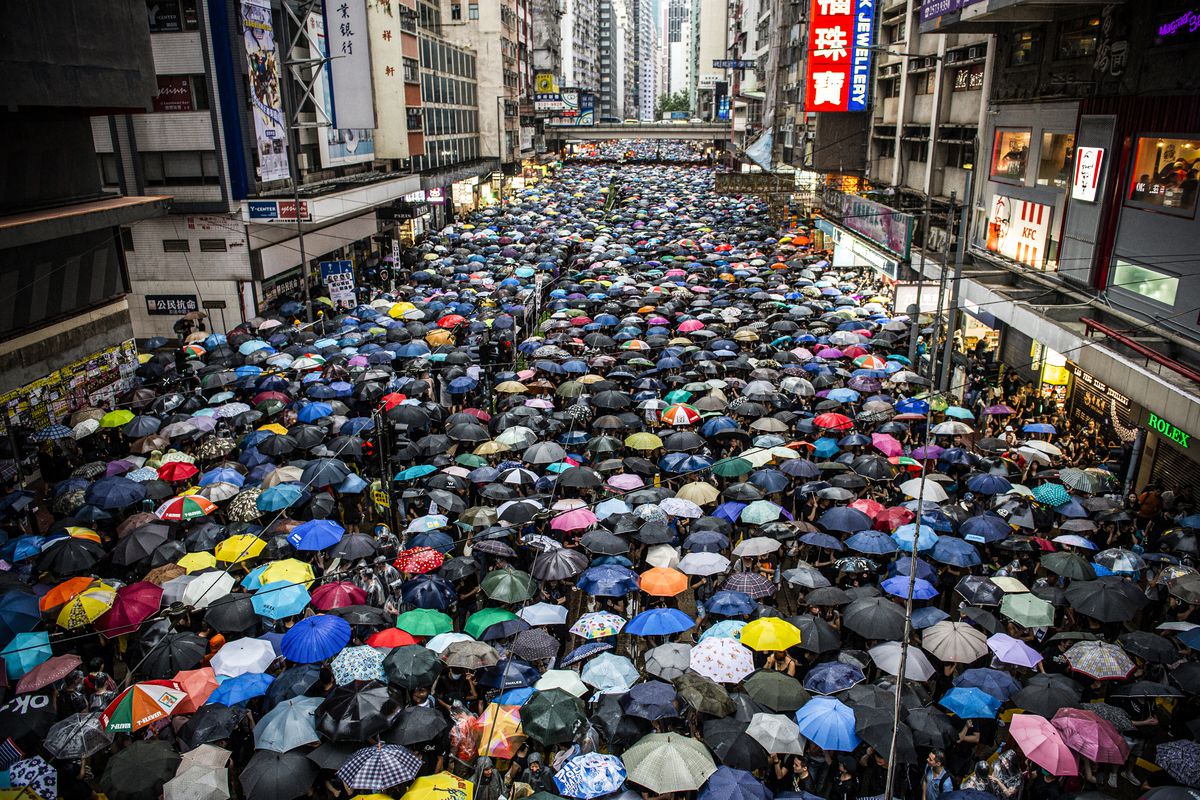Dr Jahanbakhsh Izadi, referring to the current unrest in Hong Kong and the continuing anti-government protests in the country, said: “These unrests have both internal causes and external provocations and, as the British say, they can be accelerating and this heightens the atmosphere.
He said that Hong Kong had been under the influence of the British culture and politics for 99 years and is therefore distinctly different from the rest of China, adding: “They have experienced and understood Western-style democracy for years. When the United Kingdom ended its mandate there and returned Hong Kong to China, it ratified a treaty whereby China should not interfere in Hong Kong’s internal affairs; it could only exercise sovereignty. That is to say, maintaining China’s territorial integrity and repelling potential enemies. This is inconsistent with a full-fledged entry for changing political and factional equations and adjust administrative and security approaches within Hong Kong.
“It seems that the Chinese have recently ignored this second part,” he added. They interfere in the designation of governors and lower rank officials as well as in the transformation of the ruling government and restrictions on greater freedoms; for example, when police entered the airport to calm the protests the protesters walked out peacefully. This was the reason for the cultural-political distinction that has been formed throughout the history of Hong Kong’s rule.
“It seems that the United Kingdom and the United States are evaluating the volatility in Hong Kong so they can use it as a platform to spread the unrest to other regions of China and implement the regional equations for global management and expand their favourite liberal order. On the one hand, they want to level accusations against China and highlight it in open violation of human rights as is apparent in Hong Kong to use the regional equations they want to govern the world and expand their desired liberal order.
Referring to the US claim on Chinese military presence in Hong Kong’s borders, Izadi said: “The protests in Hong Kong will not escalate for several reasons; first, that civil political behaviour will eventually come to a pervasive perception and decision in some way. Hong Kong has no potentials for violence. There must be some reasons expressed by the two sides for violence but you do not find this capacity Hong Kong. Besides, the Chinese usually have no choice but to hit news headlines for human rights violations.
He added: “China has a 50-year development plan and it is interesting that they are constantly renewing it. The plan contains a policy underlining that they should not move toward tension with the United States under any circumstances, because it would be to their detriment. The third point is that the Americans have concentrated significantly on South China and the Far East, and this is noteworthy in the form of a turnaround strategy towards Asia. They built many military facilities there, concluded bilateral agreements with countries, conducted numerous manoeuvres, and began the movements long before Hong Kong.
He noted: “It should be borne in mind that China’s economic growth has slowed somewhat and that there is a housing crisis and political crises are ahead, so it is unlikely for the Chinese to step in to ignite it. Therefore, it is unlikely for China to deteriorate the situation. Given the preparedness of the other party, they would not turn to violence. But some layers of Chinese establishment may do things and impose decisions that, for example, will overcome some of their problems, but I don’t think Hong Kong has that talent!
Izadi also said of US interventionist measures in Hong Kong: “The question of the Americans and the Chinese are summed up in several pivots: customs tariffs, boosting China’s military presence in the South China Sea, attacking its neighbours; The Chinese want their international role to be consolidated in addition to boosting their economic status. Therefore, Americans feel that the ultimate threat in the future will be from China. That is why they have concentrated on an encounter with China.
He also said: “With Trump in power, Americans are showing more of their propaganda density, but when we read the US National Security documents we realize that the process of strategic development the Americans designed has not been distorted at all; If, for example, it is argued that Mr Trump is deconstructing all of Mr Obama’s achievements and seeking to launch a new plan, no strategic changes have been made.
Izadi emphasized: “If you look at the 2017 US National Document, you see the same literature and the same axes that Mr Obama mentioned in previous documents. In my view, there has been and will be no change in the American approach in the strategic area.










0 Comments